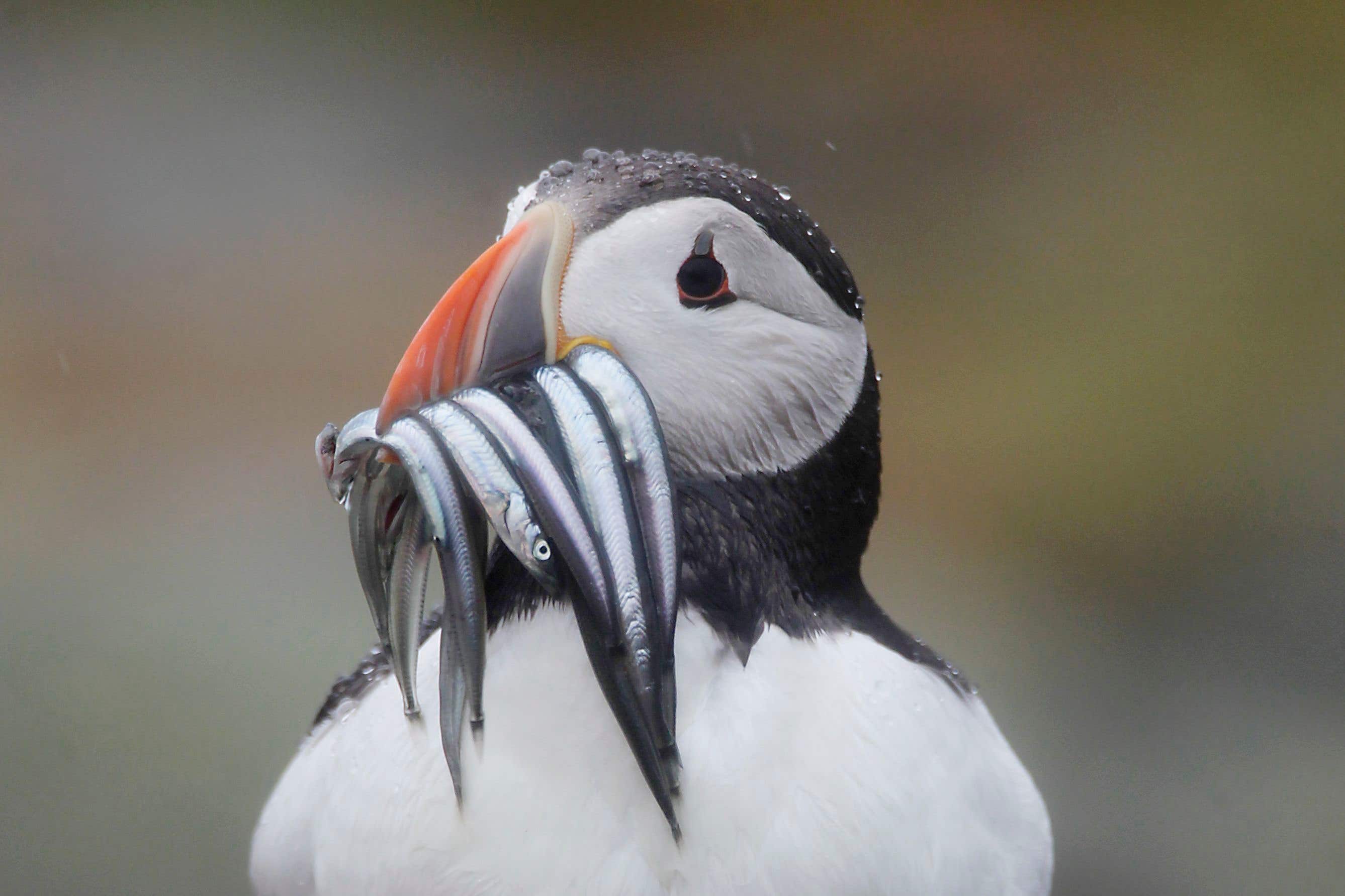Threatened seabirds may have ‘lifeline’ with potential sandeel fishing ban
The Government has begun a consultation which may lead to a ban on fishing for an important source of food for puffins and kittiwakes.

Your support helps us to tell the story
From reproductive rights to climate change to Big Tech, The Independent is on the ground when the story is developing. Whether it's investigating the financials of Elon Musk's pro-Trump PAC or producing our latest documentary, 'The A Word', which shines a light on the American women fighting for reproductive rights, we know how important it is to parse out the facts from the messaging.
At such a critical moment in US history, we need reporters on the ground. Your donation allows us to keep sending journalists to speak to both sides of the story.
The Independent is trusted by Americans across the entire political spectrum. And unlike many other quality news outlets, we choose not to lock Americans out of our reporting and analysis with paywalls. We believe quality journalism should be available to everyone, paid for by those who can afford it.
Your support makes all the difference.Industrial fishing for sandeels could soon be banned under new Government proposals, offering some of the UK’s best-known bird species a “lifeline”.
Sandeels are small, eel-like fish that are an important source of food for threatened birds such as puffins and kittiwakes.
While warming seas are reducing the sandeel population, industrial fishing adds extra pressure and reduces the amount available for the birds during the breeding season.
Kittiwake numbers have fallen by half since the 1960s while the traditionally strong colony of puffins on the Farne Islands off the Northumberland coast is in decline.
Both species are on the International Union for Conservation of Nature’s Red List of Threatened Species.
There is an urgent need to build the resilience of our seabird colonies as well as helping to rebuild the overall health of the North Sea for all marine wildlife.
A report from NatureScot in 2021 found that Arctic skuas had declined by 81% since the 1980s, with sandeel fishing being a factor.
The Government said that without effective management, sandeel fishing in the North Sea poses a risk to the breeding success of UK seabirds.
A full ban on fishing could increase the seabirds’ abundance within 10 years, according to experts at Natural England, the Joint Nature Conservation Committee and the Centre for Environment, Fisheries and Aquaculture Science.
Melissa Moore, head of policy at Oceana UK, said a ban on sandeel fishing is “much needed” and that industrial fishing for all species should be banned in Marine Protected Areas.
The Department for Environment, Food and Rural Affairs (Defra) has launched a consultation on introducing restrictions on sandeel fishing in English waters.
Environment Secretary Therese Coffey said: “Britain’s seabirds are beautiful to observe and a treasured part of our coastal environment and their existence and ways of life are crucial to the wider health of our marine ecosystems.
“This consultation is an important step in securing their protection and delivering our commitment in the Environment Improvement Plan to halt the decline of nature and allow wildlife to thrive”.
The Government hopes to build on the three Highly Protected Marine Areas (HPMAs) it designated at the end of February by running the consultation, which will last for 12 weeks until May 30.
The HPMAs will come into effect by July and will ban activities such as fishing, construction and dredging.
Environmental groups have urged the Government to massively extend HPMAs saying they cover only 0.5% of English waters.
The UK was part of the UN agreement in December which set a target to protect 30% of the world’s seas by 2030.
Katie-jo Luxton, director for conservation at the Royal Society for the Protection of Birds, said of the consultation: “This is huge news for the UK’s efforts to save our iconic seabirds.
“Decades of increasing ‘human-induced’ pressures in our busy seas have left our seabirds in a precarious state, and a ban on industrial trawling for sandeels would throw our most threatened seabirds a lifeline in the face of mounting pressures in our seas.
“This is a crucial moment; after last year’s devastating outbreak of highly pathogenic avian flu and with major new offshore energy developments planned, there is an urgent need to build the resilience of our seabird colonies as well as helping to rebuild the overall health of the North Sea for all marine wildlife.”
The consultation announcement comes almost a week before the screening of a new series narrated by Sir David Attenborough, Wild Isles, which highlights some of the UK’s natural living wonders.
Kate Norgrove, executive director of advocacy and campaigns for World Wide Fund for Nature said: “The UK is home to some of the most spectacular species on earth and our seas some of the richest in Europe.
“But we are pushing nature to the brink, and as a result, it urgently needs our protection and restoration.
“If we are to help stabilise our climate, our economy and leave a planet fit for the next generation, we need to see many more measures to tackle the systemic challenges that continue to push nature to the brink.”